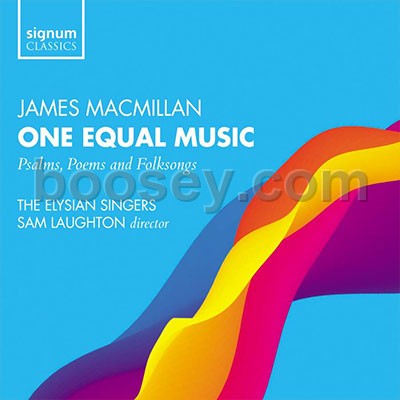John Donne (1572-1631) (E)
SSSAAATTTTBB a cappella
Abbreviations (PDF)
Boosey & Hawkes
Choral level of difficulty: 3 (5 greatest)
One of the fascinating aspects of MacMillan’s word setting is his wholly fresh approach to the setting of words which already have what might be considered an iconic setting. Sir William Harris’s motet using these words (‘Bring us, O Lord God’) is so well-known in church music circles that it is difficult to divorce oneself from the familiarity of his outstanding double choir writing. And yet here we have an absolutely remarkable, inspired and entirely new approach to Donne’s beautiful poetry. This is MacMillan’s second setting of the same text, the earlier being Bring us, O Lord God dating from 2009.
The motet was commissioned by Professor John Morrill of Selwyn College, Cambridge in memory of his wife and in gratitude to his college. The words are highly appropriate for such a memorial and the work would be suitable for any kind of remembrance service.
On the face of it the music looks straightforward enough, and there is nothing in the notation to scare the average choir. It is scored for three sopranos, alto, tenor and bass with divisions in all lower voice parts. There are parts, too, for alto and soprano soloists. The challenges lie in realizing the composer’s intentions for effective humming (some mouth closed and some mouth open) and the blend and balance to be achieved so that an ‘other-worldly’ soundscape is realized. A low bass part asks for a D below the stave, though MacMillan marks it ‘if possible’. The final low D of the piece is not optional, however. The key to the successful performance is in everyone understanding the intention of this music – especially, perhaps, the silences, the short, fragmentary alto and soprano figures around bars 49-58 and the wonderful textural effects which bring the music to its close. The extraordinary effect of the eight-part ‘ah-’mm’ with cresc/dim backing a soprano solo shows just how vivid MacMillan’s imagination is. The responsibility of the choir director and singers to realize this soundscape is paramount.
This is a wonderful motet which will be relished by many choirs.
Repertoire Note by Paul Spicer

The Elysian Singers/Sam Laughton
Signum SIGCD575

